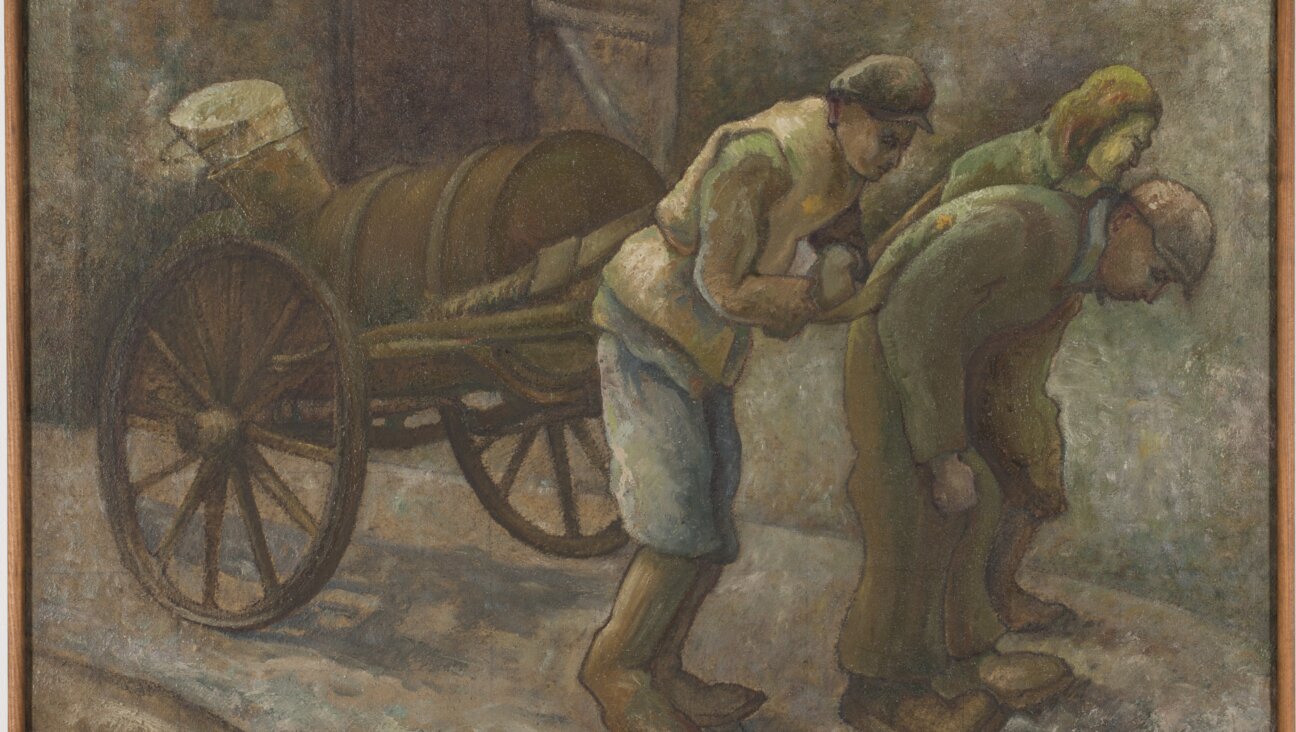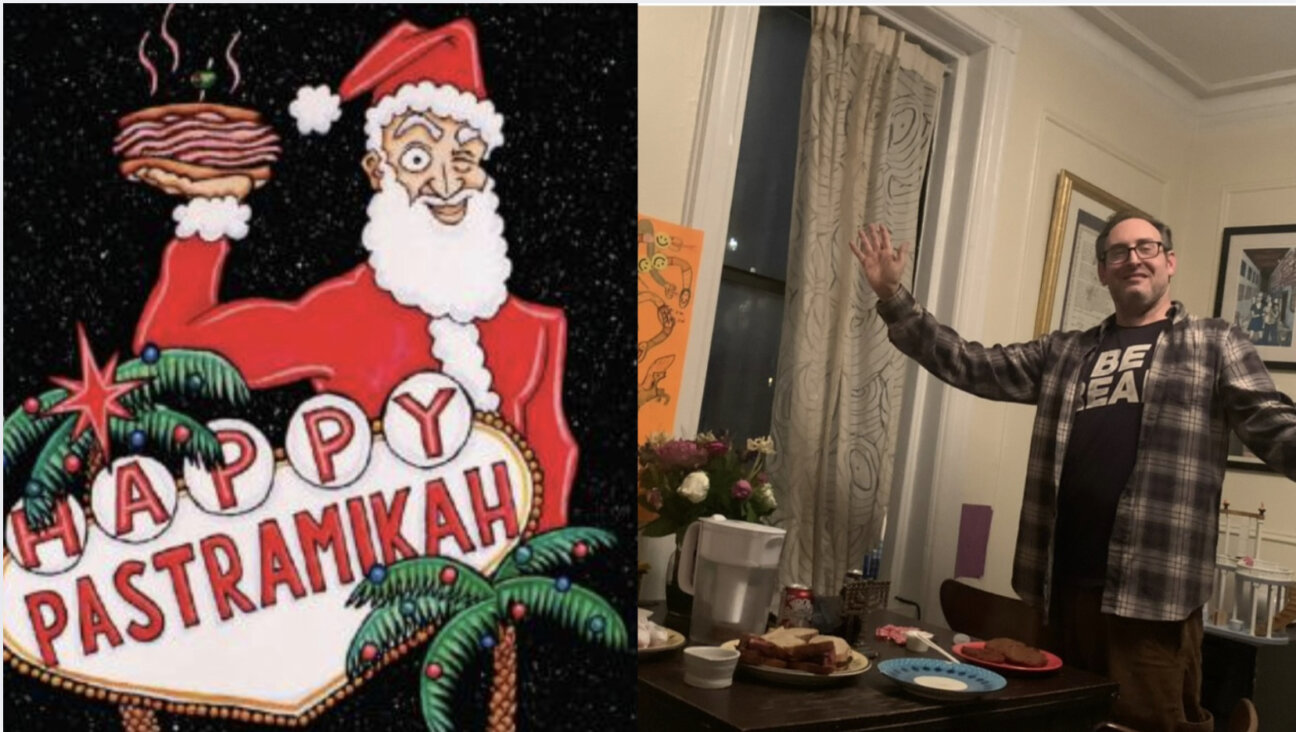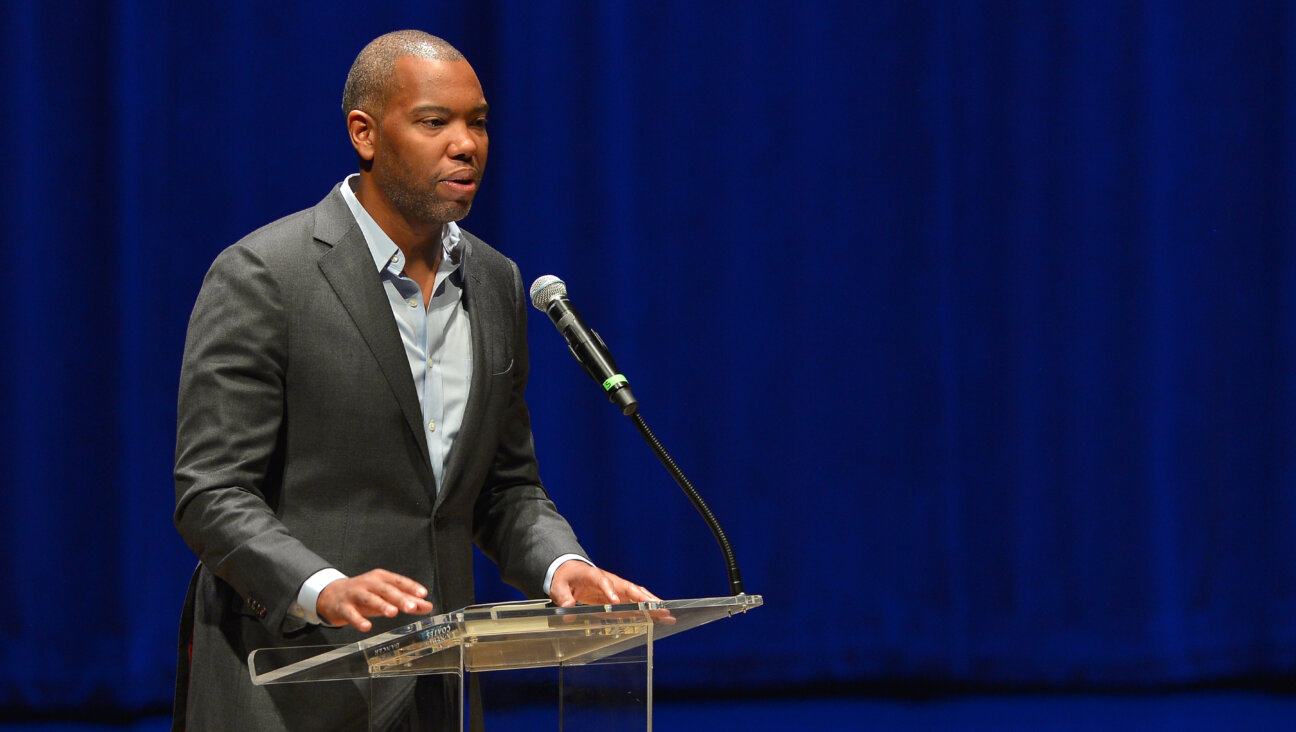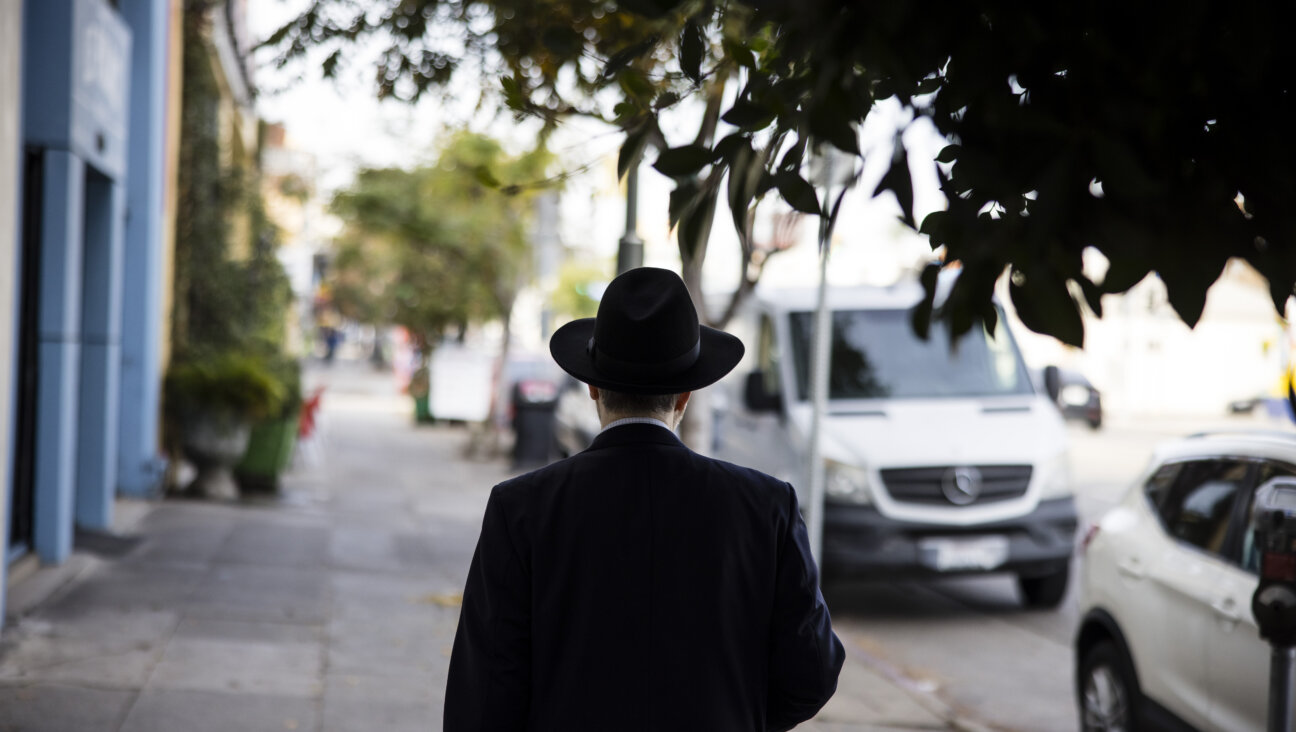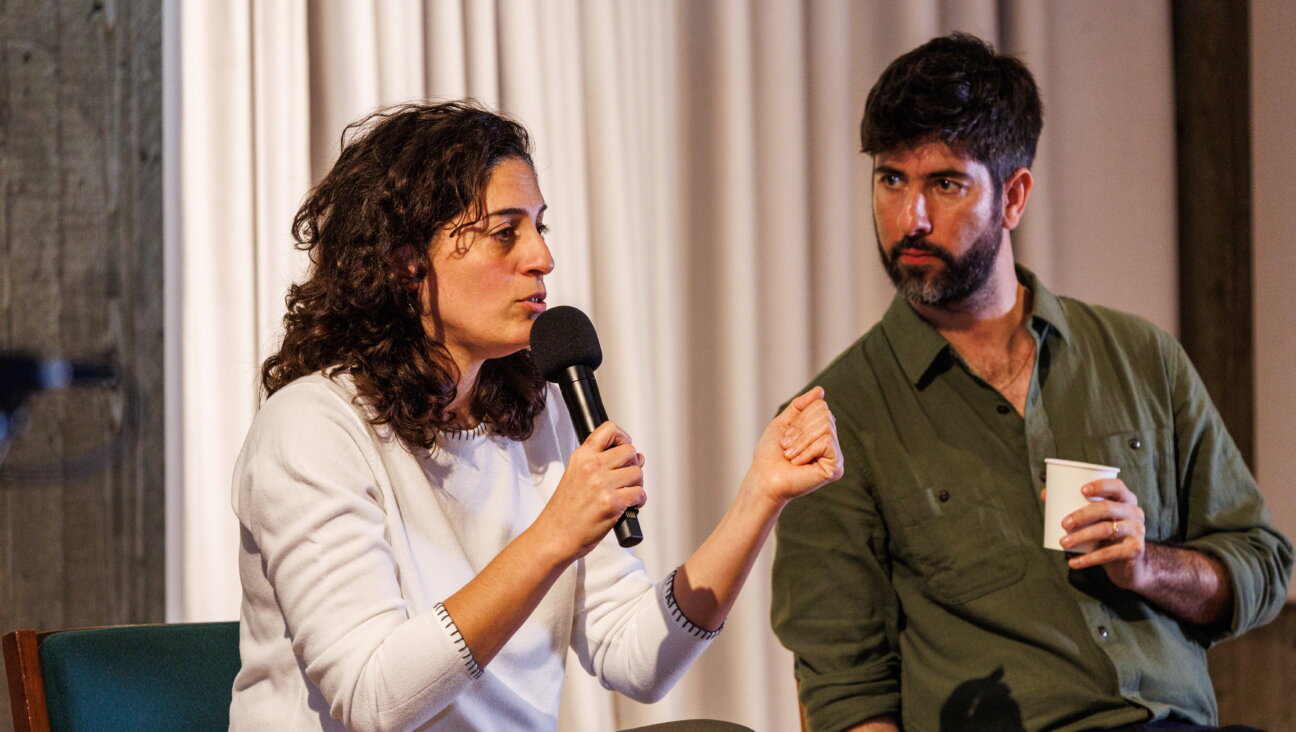They were a kosher bakery success story — 80 years later, people are still trying to make a buck off their babka
The tale of Schick’s Bakery is one of 20th-century ingenuity and 21st-century capitalism
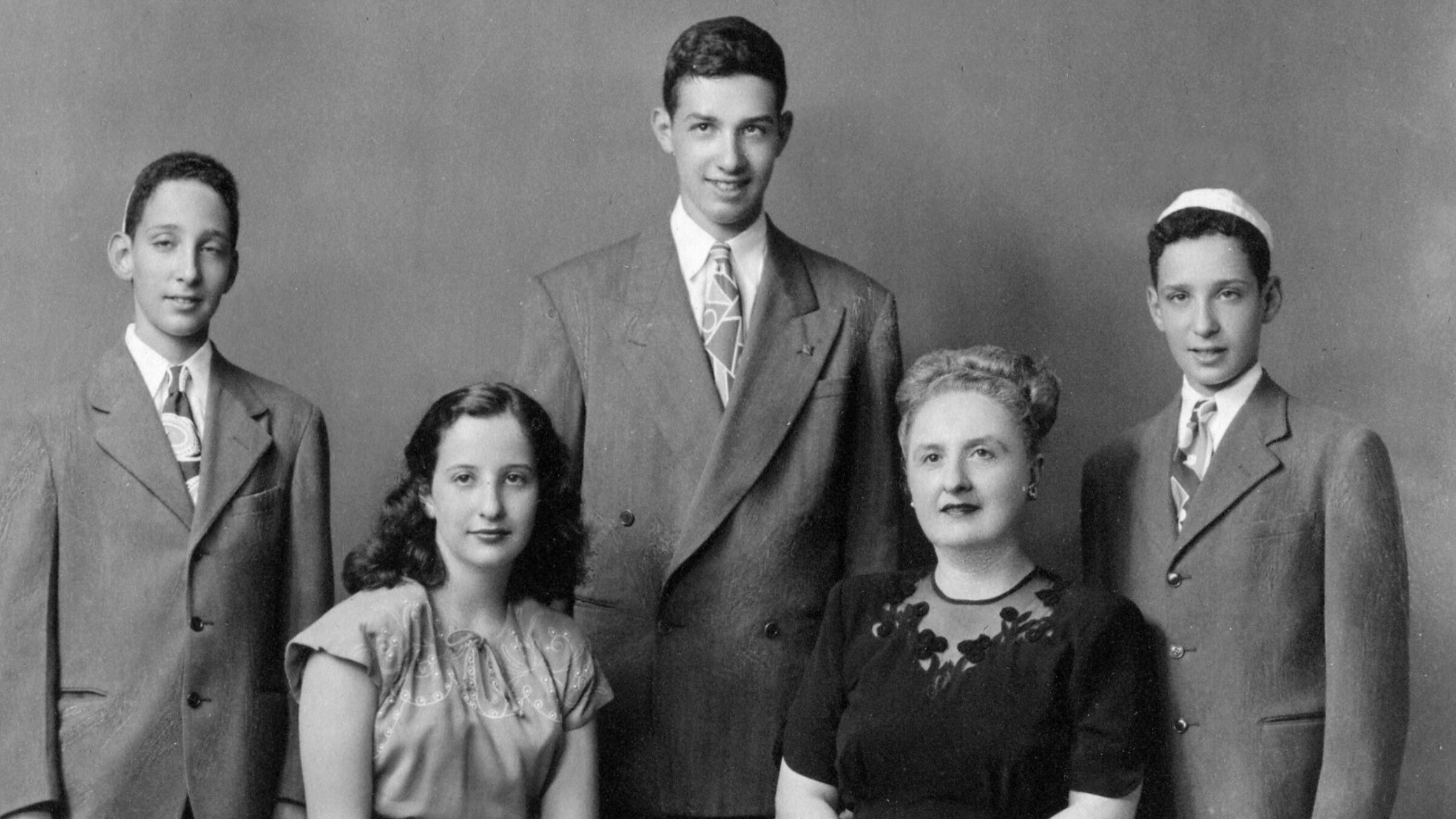
Undated Schick family portrait. From left: Marvin, Ruth, Arthur, Renee and Allen. Courtesy of Deborah Schick Laufer
Allen Schick, who is 90, is a fan of Trader Joe’s Brooklyn Babka. An observant Jew, he buys the kosher treat at the store near his home in Silver Spring, Maryland, when it’s in stock. It’s a faint reminder of the babkas that his mother, Renee, used to hand-braid in her Borough Park bakery.
The retired University of Maryland political science professor had never read the $5.99 babka’s online description until I emailed it to him:
“Trader Joe’s Chocolate Brooklyn Babka is made for us by a small, kosher bakery in — where else? — Brooklyn, New York, that literally grew out of their grandmother’s kitchen.”
The marketing copy refers to his very own mother’s kitchen. But it’s no longer made in a small, kosher bakery and has only a sentimental connection to his family.
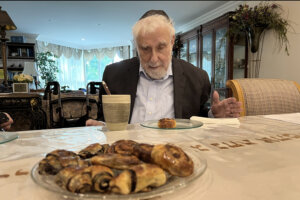
Schick wasn’t aware that the babkas are now made by Brooklyn Brands, a subsidiary of Taguchi & Co., a Japanese dessert firm that owns the Schick’s Bakery brand and, by extension, its origin story: A widowed Orthodox mother goes from home baking in 1943 to opening Schick’s Bakery, which went on to become a Brooklyn neighborhood institution.
He had lost track of the business in recent years. His mother sold the bakery in 1960 to two Holocaust survivors, Moshe Braunfeld and Chaim Widawsky, who were brothers-in-law. The two men and then their sons ran the business until 2011 when they sold to investors. No longer a storefront, Schick’s as a brand then changed hands three more times until it became just another asset in the portfolio of a multinational.
Brooklyn Brands’ babkas, hamantashen, honey cakes, and black-and-white cookies produced in — where else? — The Bronx — are sold under different retail labels and brand names, like Lilly’s Baking Company, at over 10,000 supermarkets, including Costco, BJs, Whole Foods, Publix, Kroger and Trader Joe’s.
For big-box shoppers, rugelach and rainbow cookies from a family bakery “since 1943” offer a seemingly authentic alternative to Sara Lee and Chips Ahoy. The “Born in Brooklyn” label suggests an artisanal product of the melting pot. In reality, the old-school treats are a new creation of private equity and immigrant labor, part of a boom of New York Jewish desserts at a time when Jewish New York bakeries are rapidly disappearing.
The Brooklyn origin story
In 1938, when Schick and his twin brother, Marvin, were 4 years old, their father, Rabbi Joseph Schick, died suddenly. Penniless with four young children, their mother thought about sending the older two to live with family in her native Romania.
“But relatives in Europe advised us that the situation was too precarious,” Allen Schick told me by phone from his second home in Israel, “so she sent me and my twin brother Marvin to an orphanage.”

Evicted from her Manhattan apartment, Renee and her two older children moved to Borough Park, where she had cousins. To scrape by, the widowed rebbetzin sold challahs baked four at a time in a Magic Chef oven donated by a local synagogue, Shomrei Emunah.
The challahs became a Shabbat favorite in the community, and after five years, with the aid of a generous neighborhood lawyer, Renee opened Schick’s Bakery. Allen and Marvin soon rejoined their family in an apartment above the 16th Avenue storefront.
Junior’s Cheesecake may be Brooklyn’s most iconic dessert, but Schick’s was the go-to spot for generations of Orthodox families, especially during Passover. In 2012, when then-Brooklyn Borough President Eric Adams wanted to give a nod to his Jewish constituents in a Christmas tweet, the future mayor praised Schick’s seven-layer coffee cake.
Despite the bakery’s success, none of Renee’s children wished to join the family business. Allen received a Ph.D. from Yale and is an authority on government budgets. Marvin, who died in 2020, did his Ph.D. at New York University and was an adviser to New York Mayor John Lindsay and an advocate for Orthodox Jewish rights.

Renee died in 1998, and there was little left even then of the Schick’s she built and sold. By the time the storefront closed in 2011, the bulk of the business was prepackaged kosher-for-Passover pastries sold in New York-area supermarkets.
Brooklyn Brands representatives declined to comment for this article. They stopped using the Schick name last year, but still use aspects of the family story, including the 1943 founding date, marketing the brand on their website as expanding “from a small shop in Brooklyn to the leading baker of cookies, cakes, babkas and breads.”
Allen Schick still fondly remembers the thinly layered babkas his mother made from scratch, cracking each egg herself to ensure they were fresh and kosher, without a speck of blood. Unlike Brooklyn Brands, her babkas contained dairy and they were always cinnamon, never chocolate, and certainly didn’t incorporate new-wave flavors like mango or pumpkin spice.
Trader Joe’s has not carried cinnamon babka for months.
“There’s more than a little myth-making in the babka connection to Schick’s Bakery,” Schick told me via email.
A braided history of baking and branding
Far from their grainy Ebbets Field marketing photos, Brooklyn Brands is located on the industrial edge of the Mott Haven section of the South Bronx off the Bruckner Expressway. The air is filled with a sweet cinnamon scent from the bakery, while the sidewalks are littered with used syringes.
At the end of their shifts, managers drive off toward the highway. The workers, mainly Latin American and African immigrants who earn at or near the minimum wage, quickly head into the 143rd Street station of the 6 train abutting the facility.
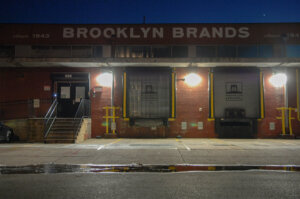
Above the Brooklyn Bridge logo on the building façade “since 1943” is painted. However, when boasting of its rapid growth, the company offers a different founding year: 2015, when the investment bank Astor Group founded Brooklyn Brands by purchasing a kosher wholesaler, Borough Park Bakery, for $8.75 million. That company itself was formed in 2008 when the real estate developer Mendel Brach and wholesale baker Shaye Lieberman merged three large Brooklyn kosher bakeries — Mezonos Maven Bakery, Mehadrin Bakery and Lilly’s Homestyle Bakeshop.
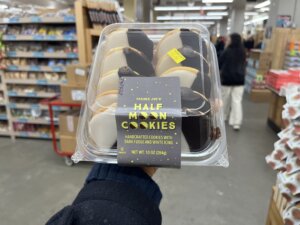
Both Lieberman and Brach came with complicated histories. In 2003, under Lieberman’s management, seven Mezonos Maven workers who complained of harassment and 75-hour work weeks without overtime were fired. After the employees filed charges, the company settled, agreeing to rehire with back pay, but then argued they couldn’t comply since the workers were undocumented. Borough Park Bakery continued the legal fight until a judge in 2015 ruled in the workers’ favor, noting employers often exploit immigration laws only when workers assert their rights.
Brach had been embroiled in lawsuits stemming from constructing an illegally oversized Bedford-Stuyvesant apartment building in 2002. In 2009, he was barred from selling condos and became the sole owner of Borough Park Bakery. Three years later, he acquired the Schick’s brand from investors who had purchased it after it closed the year before.
“These companies were selling primarily to local yeshivas and kosher groceries,” Astor Group co-founder Seth Zalkin told Jewish Journal in 2017. “We wanted them to be in places like Whole Foods, Stop & Shop, Publix, Costco and Kroger.”
Zalkin and his partner, Mickey Klein, expanded production and rebranded for the wider public. Dairy-free parve kosher rugelach was relabeled as “naturally vegan,” and flourless kosher-for-Passover desserts were promoted as gluten-free. They claimed the whole “hip” borough of Brooklyn, not just Orthodox Borough Park. Confections branded with the explicitly religious labels “Mehadrin” and “Mezonos Maven,” were replaced with “Lilly’s Baking Company,” a name easier for the American consumer to digest.
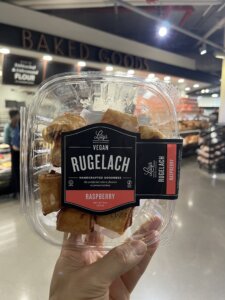
“We grew up with these products and realized they could have wider appeal,” Klein told Jewish Journal, and he was right. In June 2023, Brooklyn Brands was sold, reportedly for eight figures, to Taguchi & Co., a decades-old dessert firm that sells Asian baked goods across North America. At the time, Astor Group told Forbes that sales of Lilly’s Baking Company increased by 155% in the four years before the COVID-19 pandemic, and were expected to grow by another 26% that year.
Publicly available court records from over a dozen legal cases, however, paint a more complicated picture of the company’s growth.
In 2018, Brooklyn Brands ceased to be a Brooklyn company. They were evicted from their original facility after the bakery’s former owner, Shaye Lieberman, quietly sold the building. During the legal fallout, Shaye’s son, Ethan Lieberman, then Brooklyn Brands’ director of sales, quit and joined competitor Beigel’s Bakery. There, he launched Molly’s Bake House, with products resembling those made by Lilly’s Baking Company — a move made easy as Brooklyn Brands had previously outsourced production to Beigel’s when they struggled to meet demand.
In 2017, a worker was severely injured on the job while removing cookie dough from a machine, and received worker’s comp. In 2021, Brooklyn Brands reached settlements with three warehouse workers who claimed a manager was racially abusive. A 2023 settlement involved an office worker who alleged she was fired for being pregnant.
These stories didn’t make Brooklyn Brands’ “Our Story” page, which continued to celebrate Renee Schick, repeating her story even as the investment bank moved away from Schick’s products. “We have expanded to include other brands and other baked goods,” it explained, without distinguishing themselves from the original family bakery, “but Renee Schick’s passion for crafting indulgent baked goods has grown into the leading baker of babkas, cookies, cakes, and breads.”
Allen Schick didn’t object to the company’s use of his mother’s story. “I have no problem with Brooklyn Brands claiming 1943 roots, nor with its baking and marketing innovations,” he said, “but my mother might have protested.”
He’s tickled that his mother’s legacy survives as the intellectual property of a Japanese multinational, even if the mass-produced packaged supermarket confections wouldn’t meet her standards. “If it hadn’t been sold and moved in that direction,” he said, “we would have disappeared.”
A renaissance in rugelach, a boom in black-and-whites
The past decade has seen a rugelach renaissance, even as beloved New York spots like Mother’s Bakery in Riverdale and the original Moishe’s location on Second Avenue have closed. Black-and-white cookies, once known only to many Americans from Seinfeld, are now on supermarket shelves across the country. And yet, Glaser’s Bake Shop — the Upper East Side bakery that invented the black-and-white in 1902 — also closed in 2018.
Classic neighborhood bakeries thrived before supermarkets or the growth of the suburbs. Brooklyn mothers patiently stood in line each week to buy Renee Schick’s challahs and cakes for their family Shabbat tables. To meet the demand, Renee rose at 3 a.m. on Thursday morning and worked straight until sunset Friday.
The Schick siblings all helped out. “Even when I was in Yale,” Allen Schick told me, “I would take a train from New Haven to Brooklyn, and work in the bakery — Thursday, Friday, return to New Haven on Sunday.”
Schick’s Bakery was more than a place to buy bread; it’s where the community came together. It was through a customer that Schick met his wife of 66 years.
But over time, the business changed.
“Supermarkets with a meat department, a fish department, a bakery department, and much more opened up,” he explained. “That led to not an immediate decline, but a progressive decline in Schick’s Bakery.”

Soon there would be a boom in babka, but at the time Schick’s storefront closed in 2011, Jewish desserts were still a niche market. That year, food writer Katherine Martinelli asked the then-legitimate question in this publication: “Why aren’t there more creative takes on babka?”
Jewish babka evolved from Shabbat sweets crafted from leftover challah dough in early 19th-century Poland, according to the 2010 Encyclopedia of Jewish Food by historian Gil Marks. While Russians and Poles proudly made fruit-filled or rum-soaked round babkas, their Jewish neighbors formed theirs into rectangular loaves, flavored with cinnamon. This is the babka that migrated to New York and is what the Schick boys grew up eating. It was not until the late 1950s that, Marks says, babka became widely popular among American Jews and then common in New York bakeries, which at some point added the decadent, new-world chocolate variety.
Those were still the only two babka choices when Jerry and Elaine famously entered a Manhattan bakery in a 1994 Seinfeld episode, declaring cinnamon the “lesser babka.”
Seinfeld was the bread-cake hybrid’s high water mark until 2013, when Bread’s Bakery’s Nutella-filled babka went viral. Babkas spread and mutated as boutique bakeries tried new twists on the twisted desserts. Now, Jewish food writers complain of the onslaught of ube-flavored or fruity pebble-encrusted “hipster babkas” from London to Des Moines. And along with “hipster babka” came factory babka, which proved to be a gateway Jewish dessert, whetting American appetites for rugelach, black-and-white cookies, and hamantashen.
Something gained, something lost
Brooklyn Brands wasn’t the first to mass-market Jewish baked goods. Green’s Bakery in Brooklyn has long sold babka to New York gourmet markets and ships nationwide. Beigel’s Bakery distributes black-and-whites and challah widely. No company, however, has done more to spread babka than Brooklyn Brands.
Their success is a reflection of America’s newfound Jewish sweet tooth as much as the growth of packaged desserts. According to the research and advisory group Mordor Intelligence, the North American baked goods market generates $100 billion annually, with over 80% of profits coming from commercial bakeries.
A store-bought cake today is not like one made 80 or even 30 years ago, though. In an email, scientist and Institute of Food Technologists member Debomitra Dey sang the praises of xanthan gum, hydrocolloids and non-thermal food processing — advances that Renee Schick could never have dreamed of.
“Mass-produced babka can match the taste of your local bakery,” Dey said, noting its consistency, shelf life and lower cost.
But could mass-produced babka ever capture what made Renee Schick’s special?

“That food tastes good to us, it’s not just about our taste buds,” said Ted Merwin, a historian of Jewish food and identity who wrote the book Pastrami on Rye, a social history of the Jewish deli. “It’s because of the memories and feelings that are attached to it.”
Dey agrees. “A massive baking plant cannot fully recreate the magic of your local bakery babka,” she said. “The key for consumers is how they can relate to the product, whether it’s through nostalgia, the source of its ingredients, or the way it was made.” Companies, she explained, must present a compelling story.
Brooklyn Brands leans into a narrative of a small neighborhood Jewish bakery, not a large new Bronx industrial facility. This reflects a decadeslong trend of corporations commodifying ethnic identity into pre-packaged food.
“It’s the marker of assimilation,” said Merwin. “The ethnic group is being embraced by the larger society.” But in the pursuit of a wider market, Brooklyn Brands has shifted away from costly practices that have little value outside religious Jewish communities. All their products are still certified kosher by the Orthodox Union, but some are no longer “Pas Yisroel,” baked with the participation of an observant Jew. They also stopped making kosher-for-Passover desserts.
Merwin cautions that the company’s goal to sell Jewish desserts in every 7-Eleven and every Starbucks risks eroding their Jewish identity, much like the bagel: found everywhere, produced by anyone, stuffed with anything, and eaten all the time.
“Once it’s available everywhere,” he said, “then it means that it’s not special anymore.” Waiting in line before Shabbat at a Jewish bakery, like going to a kosher deli, “is not about the food per se,” he explained. “It’s about the experience of the gestalt of being in a Jewish communal space.”
Baking in the new world
On a recent evening, I rode the 6 train into Manhattan from Brooklyn Brands with a worker from Latin America, who asked that his name not be used for fear of retribution from his employer. In 10 years, he has seen the bakery grow tremendously, move to the Bronx, and have three separate owners. Despite the scaling up, he said, little has changed.
The black-and-white cookie glaze is still individually painted on. The babka is still twisted by hand. Another thing, he said, that hasn’t changed is the working conditions.
“They employed a lot of Spanish [-speaking], probably undocumented workers,” said Anthony Miranti, a union organizer with Local 22 of the Eastern States Joint Board, which represents manufacturing workers. In 2013, Maranti led an unsuccessful organizing campaign of what was then Borough Park Bakery. The workers, he remembered, faced job conditions common in an industry that relies on low-wage immigrant labor.

“There were no medical benefits there, there was little to no raise increases there, or vacation pay, or holiday pay,” he told me in a phone interview.
Current workers told me Brooklyn Brands does pay minimum wage and overtime to all employees independent of their immigration status. They also get the minimum sick days required in New York state, but little more. They say they have no paid holidays or vacation. When the bakery closes for Jewish holidays, they added, they aren’t compensated either.
“I work 40 to 45 hours a week,” an Ecuadorian mother who works at the bakery told me in Spanish while waiting for the subway. “I just don’t know if it’s over four or five days.”
Her manager constantly changes her schedule based on orders. But no matter how many hours she works, once her shift ends, she said, she doesn’t want to see another chocolate chip-studded babka or pointy hamantashen.

“That wasn’t our bakery,” Allen Schick told me. “We were a unionized shop.” Represented by Local 3 of the Bakers and Confectionery Workers Union, the bakers didn’t just earn a living; they learned a trade.
“My mother hired Greeners, refugees that came to America [after the Holocaust],” he said proudly. “At least three or four of the people my mother hired went out to establish their own bakeries.”
But that Schick’s Bakery, along with his mother’s babka, is long gone. A world that can’t be recovered. At 90, Schick would settle for Trader Joe’s Cinnamon Brooklyn Babka, if only the stores still stocked it.
A message from our Publisher & CEO Rachel Fishman Feddersen

I hope you appreciated this article. Before you go, I’d like to ask you to please support the Forward’s award-winning, nonprofit journalism during this critical time.
We’ve set a goal to raise $260,000 by December 31. That’s an ambitious goal, but one that will give us the resources we need to invest in the high quality news, opinion, analysis and cultural coverage that isn’t available anywhere else.
If you feel inspired to make an impact, now is the time to give something back. Join us as a member at your most generous level.
— Rachel Fishman Feddersen, Publisher and CEO










